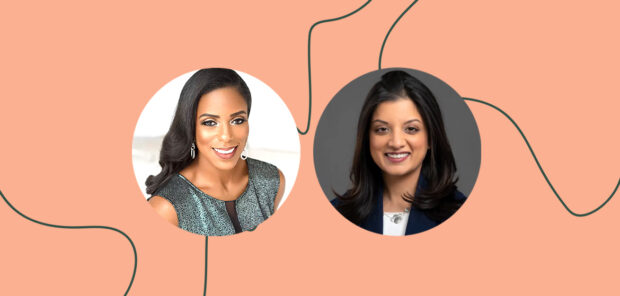Why Physicians Treating Women Need To Look Beyond the Lab for Solutions
Our current health care system doesn't make it easy to advocate for yourself. For people with vulvas, it can be even more difficult given that women's symptoms are frequently trivialized or dismissed. Through years of experience as an OB/GYN, Jessica Shepherd, MD, has learned the importance of trusting her patients when they tell her something is wrong.
"What I've heard from maybe thousands by now of women is that their experiences of what they're having through symptoms might be completely different [from] what a lab shows me," says Dr. Shepherd, who is also the founder of Her Viewpoint, an online forum for women and non-binary patients. As a physician, she says it's her responsibility to give weight to personal experience as well as evidence-based medicine. She's one of many doctors taking a patient-centered approach, but there's still so much work to be done in the medical field to make it a place where women, and transgender and non-binary folks with vulvas, can truly have their health needs met.
- Jessica Shepherd, MD, OB/GYN and women’s health expert
- Shikha Jain, MD, FACP, Shikha Jain, MD, FACP, is a medical oncologist and the founder and chair of the women in medicine summit, a non-profit organization dedicated to empowering women within the medical healthcare system.
In conversation with Well+Good general manager Kate Spies, Dr. Shepherd and medical oncologist Shikha Jain, MD, FACP, discussed the impact of the gender bias in health care in the latest episode of The Well+Good Podcast.

Dr. Jain is the founder and chair of the Women in Medicine Summit, a non-profit organization dedicated to empowering women within the medical healthcare system. She started this organization once she learned first-hand how much discrimination women in the medical field face throughout their careers.
"My parents really raised me to believe that everyone should be treated equally and equitably. And I really thought, maybe naively, that that's the way things were in the real world," says Dr. Jain. "I was sleeping three hours a night and working more than many of my colleagues and publishing more than many other people, but I was still being told that I wasn't enough. Maybe there wasn't a problem with what I was doing. Maybe there was a problem with the way the system was set up."

{{post.sponsorText}}
Women make up 50.5 percent of all medical school students, according to 2019 data from the Association of American Medical Colleges, which is the most recent available information. To keep maintain and improve the number of women entering and remaining in the medical field, Dr. Jain says that change needs to happen.
"I saw so many of my brilliant, bright mentees, colleagues, mentors leaving medicine because they felt so frustrated and overwhelmed with the fact that no matter how hard they work, no matter what they were doing—they could be working 10 times as hard as their male colleagues or their colleagues without children and their colleagues without elder care that they needed to manage—and they were never going to reach those same levels," says Dr. Jain. "Despite the fact they were working just as hard, if not harder."
Women's health care can only advance when there are women are in leadership positions to help move things forward. One example of where the medical system fails people with vulvas is in research and clinical trials.
"The studies that were done decades ago really didn't encompass a population of women. And so therefore the outcomes of those studies really didn't serve women the way that they should have," says Dr. Shepherd. "Heart disease is probably notorious for that because they did a lot of studies on heart disease on men...[T]he makeup of men is completely different physiologically than [women]. And, the response and the hormone levels and how that all equates to heart disease, they found that some of the remedies or treatments or recommendations really didn't serve a population of women that well. And so I think that comes to societal changes in how we appreciate different people, including being inclusive in studies and research. And even beyond gender, [considering] race and ethnicity."
While the medical system plays catch up, women, and transgender and non-binary folks with vulvas are left with the burden of advocating for themselves to receive comprehensive health care.
"Being your own advocate is so important. And having a team of people who are also your advocates is also really important," says Dr. Jain. "Find the doctors that you feel you have a good relationship with, but advocate for yourself. If you feel there is something wrong and you feel that your physician isn't listening to you. Find other avenues or ways for them to listen to you, bring whatever information you have, bring lists, track your symptoms, track whatever it is that's bothering you. And if they're still not listening, it might mean that you need to get a second opinion."
Listen above, and subscribe to The Well+Good Podcast on Apple, Spotify, or wherever you get your podcasts.
Loading More Posts...